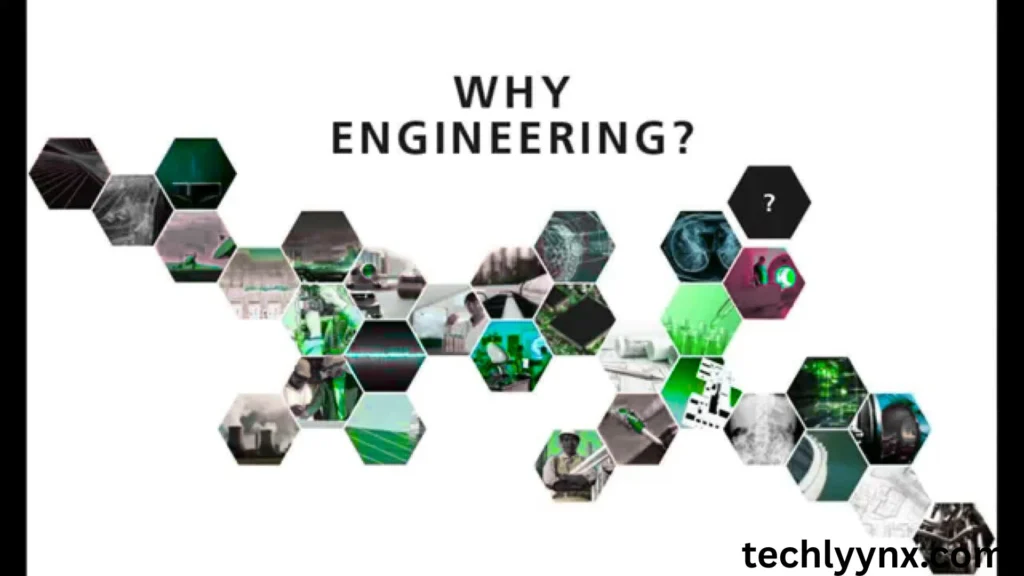We are surrounded by engineering. Modern life is made possible by it from the roads and bridges we use to the phones we carry and the systems that run our cities. However, many people only have a hazy understanding of what engineering actually is, despite the fact that it has played a huge part in shaping the world.
This article provides a comprehensive introduction to engineering. It focuses on the notion of engineering rather than the different fields or what engineers do; these topics will be covered in later guides. Giving you a firm grasp of engineering’s meaning, importance, and relationships to technology, society, and human creativity is the aim here.
What is Engineering?

Fundamentally, engineering is the use of mathematics and science to address practical issues. It is a practice as well as a discipline. It involves designing, constructing, maintaining, and enhancing anything from infrastructure and machinery to software and sustainable systems employing expertise, resources, and creativity.
However, engineering is solution-driven, in contrast to pure science, which aims to comprehend how the world functions. It’s about invention, not merely discovery.
To put it simply:
Why does this happen, wonders science?
The question from engineering is: How can I make this work?
Engineering stands out for its practical approach to problem-solving. In addition to studying ideas, engineers also create solutions, frequently while adhering to practical limitations like time, money, safety, ethics, and environmental effect.
Key Characteristics Of Engineering

Problem-Solving Approach
- Engineers start with a problem, a challenge, or a need.
- They define goals, analyze constraints, and find efficient and feasible solutions.
- The process often involves trial, error, testing, and improvement.
Use of Scientific Principles
- Engineering is deeply rooted in physics, chemistry, and mathematics.
- Engineers apply these principles—not just study them—to invent, optimize, or fix things.
- Innovation and Design
- Design is at the heart of engineering.
- Whether it’s a skyscraper, a clean water system, or a mobile app, engineers create solutions that are functional, safe, and cost-effective.
Systems Thinking
- Engineering doesn’t look at parts in isolation.
- Engineers consider entire systems—how parts interact, how they affect the environment, and how people will use them.
Interdisciplinary Nature
- We can not confine Engineering to just one body of knowledge.
- It often involves teamwork between mechanical, electrical, civil, and computer professionals.
- Social, economic, and environmental factors are often a part.
Engineering vs. Other Fields

To really understand what engineering is, it helps to contrast it with other fields of study:
| Field | Primary Focus | End Goal |
|---|---|---|
| Science | Understanding natural phenomena | Knowledge and discovery |
| Engineering | Applying scientific knowledge | Designing and creating solutions |
| Mathematics | Abstract reasoning and logic | Modeling, calculating, predicting |
| Technology | Using tools and techniques | Efficiency and convenience |
| Art & Design | Expression, aesthetics | Emotional and visual impact |
Engineering overlaps with all of these areas. It uses the tools of science and math, often incorporates technology, and even includes elements of design and creativity. However, its purpose is distinct—engineering is about building practical things that improve life.
Why It Matters?
Knowing what engineering is makes it easier to see why it’s so crucial. Engineering
Fuels Advancement
Engineering has played a key role in every significant development in human history, including the wheel, electricity, airplanes, and the internet. From the industrial revolution to the digital age, it has been the foundation of progress.
Addresses Actual Issues
Numerous global issues, such as climate change and safe drinking water, call for engineering-based solutions. Engineers take the lead when creating solar panels, structures that can withstand earthquakes, or instruments for diagnosing illnesses.
Bringing Theory and Reality Together
Engineering transforms laboratory concepts into practical applications. It transforms potential into actuality.
Enhances Life Quality
Engineers are responsible for everything from clean energy and safe homes to transportation, health technologies, and entertainment devices. Their labor influences everyday living’s efficiency, safety, and comfort.
The Engineer’s Mindset

Being an engineer is a method of thinking, not just a degree or job title. This way of thinking consists of:
- Interest
Engineers ask, “How does this work?” all the time. and “Is there a better way to do this?” Innovation iby curiosity. - Thinking Critically
Every solution needs to be evaluated for safety. Trustworthy? Capable of scaling? Economical? Engineers weigh trade-offs and make judgments based on information. - Originality
Despite being fact-based, engineering is not a robot. When limitations are severe, innovative solutions frequently surface. - Resilience The process includes failure. Excellent engineers swiftly iterate and learn from mistakes.
- Accountability
Both humans and the environment changed by engineering decisions. Sustainability, safety, and ethics cannot be compromised.
In Everyday Life
Engineering is present everywhere, both apparent and unseen, despite the common misconception that it is a high-tech or remote field.
Think about this situation:
You awaken in a structure with beams made of reinforced concrete. Using water that has been filtered, you clean your teeth. You check your phone, which has a wireless connection to a huge server network. You ride a bus that runs on an electric battery or internal combustion engine. We use a laptop with circuits built for speed and efficiency at work. You check the weather forecast? created by meteorological engineers utilizing physics and atmospheric data.
Every stage of this process is feasible by this term.
Why You Should Understand

Even if you don’t plan to become an engineer, understanding what it is—and what it isn’t—is incredibly valuable. Here’s why:
- As a student, knowing the role of engineering can help you explore careers that make a real impact.
- As a citizen, it empowers you to support smart policies and innovations.
- As a business owner, it helps you work with engineers to solve complex problems.
- As a curious human, it deepens your appreciation of how the world works.
This field is more than a job or a degree. It’s a mindset, a method, and a mission—to make life better, safer, and more sustainable.

